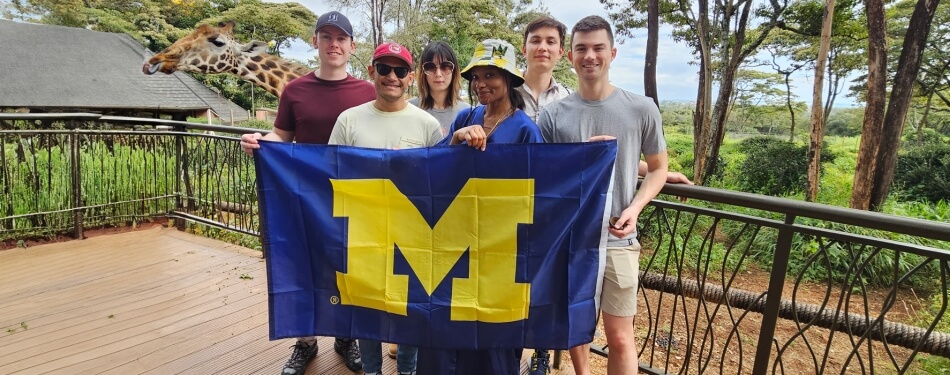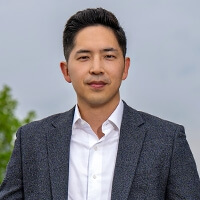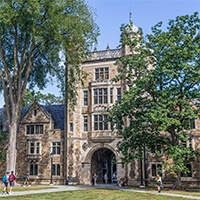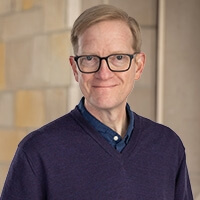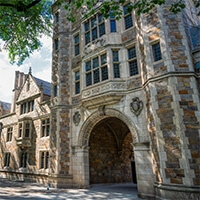For the first two months of the winter semester, students in Michigan Law’s International Transactions Clinic advised their client—the International Investment Fund (IIF) at U-M’s Ross School of Business—as the IIF conducted virtual due diligence on several startups in which they were considering investing. Over winter break, however, they shut down their laptops and Zoom screens and headed to Kenya for face-to-face meetings with one of those startups—and gained broader lessons in legal-adjacent skills and navigating cultural differences, too.
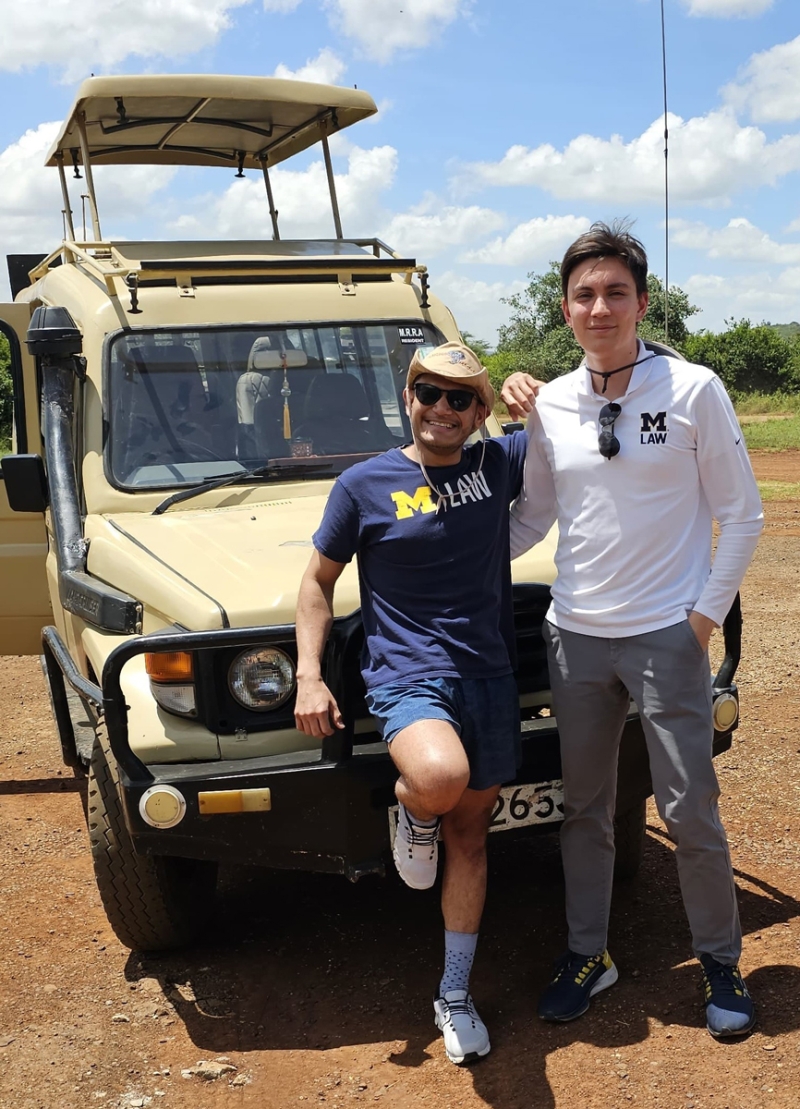
Through Michigan Law’s Bates Overseas Fellowship and the William Davidson Institute at the University of Michigan, Ryan Pham and Luis Fiallos, both 3Ls who are student-attorneys in the International Transactions Clinic, traveled to Nairobi, Kenya, with nine Ross MBA students who are part of the IIF. The IIF is a student-led fund at Michigan Ross that invests in early-stage startups in emerging economies outside of the United States.
Pham and Fiallos’s mission was to research the regulatory landscape in Kenya and assist IIF in performing due diligence on a Nairobi-based, online cosmetic sales startup.
In addition, Fiallos, Pham, and the MBA students met with many local innovation stakeholders such as the Association of Startup and SMEs Enablers of Kenya, Jasiri, Kayana Create, Ernst & Young, Bowmans LLP, Enabling Qapital, the East Africa Venture Capital Association, and the Irish Embassy.
As part of the legal due diligence, Pham and Fiallos reviewed the startup’s corporate documents, material contracts, and financial statements. They then met with the startup’s founder and team, asking about issues identified in their review process and developing a deeper understanding of the business.
“An important educational aspect of this in-person due diligence meeting was the balance between asking important, tough questions, and being respectful of the founder and her business,” Fiallos said. “Changing and adapting the tone of our communication was important to ensure that questions came across as curious, not disparaging.”
An on-the-ground education
In addition to learning about the legal, regulatory, and business landscape in Kenya, the team also learned to navigate differences in communication norms and gained a better understanding of Kenyan society.
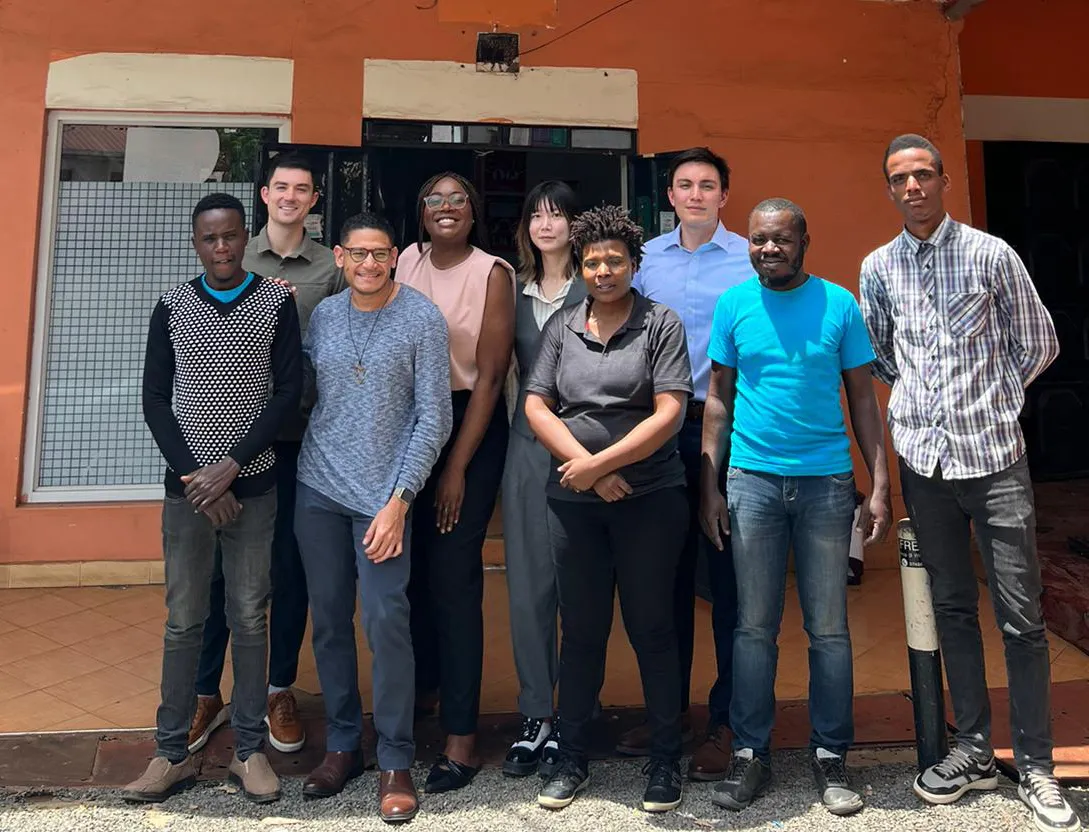
On a visit to the East Africa Venture Capital Association, they were especially intrigued to learn about the Chama—a group of individuals that pool their money or resources for collective or individual benefit. An individual can be in multiple Chamas, and each Chama may have a different purpose. For example, lower-income women and mothers often join Chamas in which they contribute their surplus food and resources to help members who are struggling.
Other types of Chamas act as “angel” investors.
“From a legal perspective, Chamas are quite interesting. No formal written contract exists with a Chama, and the Chama itself provides no form of limited liability or protection of personal assets. Instead, Chama members are bound by honor, relationships, and the fear of being socially ostracized,” Pham said.
“In Kenya, recourse through the courts is not common and is often looked down upon. Disputes are generally handled within the Chama. As law students, we were shocked to discover how much trust and honor exists within Kenyan society, and how these distinct social values shape the business and legal landscapes in Kenya.”
More than just a law and business education
Beyond immersing themselves in Kenya’s entrepreneurial ecosystem, the students also gained an understanding of the complexities of Kenyan society as a whole. They described Nairobi as “a city of stark contrasts where three distinct societal structures coexist in profound disparity.”
Staying in the affluent “Silicon Savannah,” they were surrounded by thriving business hubs and saw wealthy Nairobi residents enjoy a lifestyle akin to that of global urban centers.
But not that far away, it was a different story.
One day Fiallos and one of the MBA students took a tour to the Kibera slums and noted that in these congested and impoverished settlements, residents face unimaginable hardships, scavenging through waste in search of salvageable items to sell for a meager income.
Basic necessities like clean water, sanitation, and health care remain elusive, forcing individuals to navigate perilous conditions just to sustain themselves.
“Honestly, visiting the slums was the most transformative experience I had in Kenya,” said Fiallos. “My levels of emotional intelligence skyrocketed at unimaginable rates. One thing is knowing that this ‘situation’ exists ‘somewhere’ in Africa—and another is witnessing such conditions with your own eyes.
“You just can’t unsee it once you’re there.”
Roles without limits
For the two law students, working alongside the business students on the in-person due diligence was the perfect opportunity to see and be part of myriad considerations beyond their legal framework.
“Luis and I were intended to provide legal support, conduct legal diligence, and offer legal insight,” Pham said. “However, we quickly found out that our roles had no limits. The business school students were constantly asking for our opinions and thoughts, even on purely business matters. After the first day, Luis and I realized that we needed to think like both law students and business students.”
As a result, Fiallos and Pham say they feel better equipped for future practice.
“Because this was primarily a business school trip, Luis and I had the amazing opportunity to expand our education beyond the law. We absorbed so much information as the business school students were constantly discussing concepts such as revenue, profitability, market size, returns, growth, exits, risk, customer profiles, and synergies,” said Pham, who will join the California office of Davis Polk & Wardwell LLP after graduation.
“This trip deeply enhanced their understanding of what transactional clients do on a day-to-day basis, and this knowledge will help us become better corporate lawyers.”

